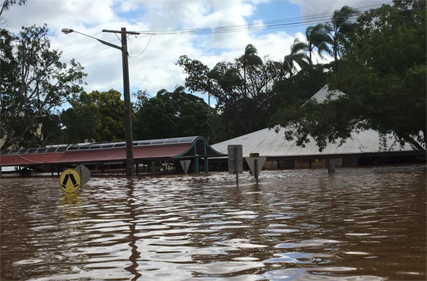
Animals that have been standing in water for some time are susceptible to skin and respiratory infections whilst bacteria, biting insects and worm eggs and larvae may also be present.
With vast areas of NSW still impacted by flood waters, landholders are being warned to remain vigilant for increased animal disease risks.
Recognising that a number of these animal diseases can exist long after flood waters recede, Local Land Services Animal Welfare and Biosecurity Business Partner, Scott Ison says it is important to inspect livestock at regular intervals once it is safe to do so.
“The most important consideration is to ensure livestock have access to clean water and feed. Stock that are nutritionally challenged and stressed as a result of the floods, are likely to be more susceptible to a range of diseases.
“Animals that have been standing in water for some time are susceptible to skin and respiratory infections whilst bacteria, biting insects and worm eggs and larvae may also be present.
“Flooded pastures can be contaminated with silt and debris which pose a particular risk as wounds or breaks in skin can quickly become infected” said Mr Ison.
Another common risk for animals following floods is plant or feed poisonings with displaced and hungry stock forced to feed on poisonous plants, weeds or rotting pastures.
“Where possible, producers who are sending stock away on agistment should endeavour to make enquiries as to the presence of poisonous plants on those properties and monitor cattle closely. The same applies to stored or standing feed that might also be flood affected.
“The good news is that if caught early, many of these diseases can be treated with veterinary attention. Inspecting animal health on a daily basis is the key” concluded Mr Ison.
NSW DPI and Local Land Services respond to natural disasters together as the Agriculture and Animal Services Functional Area (AASFA).
Landholders can register with the Agriculture and Animal Services hotline on 1800 814 647 if they need assistance with animal assessment or directly contact their Local Land Services District Veterinarian.
Local Land Services have produced the “Caring for livestock in times of flood” guide to assist landholders monitor livestock. Download a copy at here.
